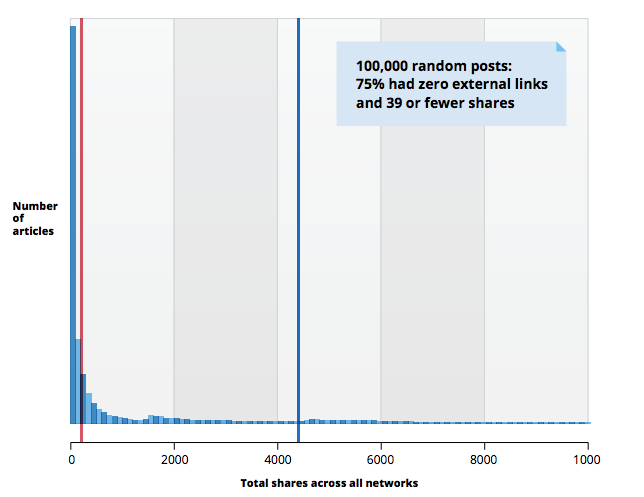We’re in a time when writers carry a heavy responsibility. They produce the fuel — SEO-ready content — that marketing engines need to drive sales forward.
That’s because content marketing requires a LOT of content. In fact, 72% of marketers surveyed said relevant content creation is the most effective SEO tactic.
It makes sense, then, that writers should be equipped with tools that help them make informed SEO decisions along the way to making relevant, optimized content.

At the beginning of each year I share my marketing predictions, and last year I wrote:
“New tools will help content marketers produce targeted, high-quality content at the time of publishing. Content writers demand more data and become more technically bold as easy-to-use tools provide traffic and competitor SEO stats, ushering in a new generation of targeted high-quality content.”
Admittedly, this led to the WordPress SEO plugin that we developed and announced last October. After all, if you predict something you should also act on it!
What a plugin like Bruce Clay SEO for WordPress does is give writers and publishers a tool to create targeted content that is reasonably search engine optimized. Writers are empowered with website and web page analytics data in a familiar environment in a user-friendly UX. Writers get competitive analysis of the targets they are aiming to outrank with their own content. And writers get all this at the point of publishing allowing for streamlined analysis within the World Wide Web’s most popular publishing platform.
This is critical because …
Original Content Is Becoming Harder to Produce
Marketers are increasingly turning to content as a way to market to ad-averse digital natives. As a result, the amount of content available on every topic possible has grown exponentially. Content works at every stage of the customer journey from brand awareness to lead generation. And everyone knows that content is needed to be in business today. This has led to content burnout.
| It’s obvious that today’s best writers have a growing need for SEO skills to help them analyze data and decide what content needs creating. |
Content burnout or overload has happened as so many topics have been covered in-depth online. Original content is harder to produce because so much has already been written on so many topics. Targeted content is in some ways easier to produce because of the amount of tools available and the lower volume of existing content online, but to produce both original and targeted content is still difficult.
Is Too Much Content a Bad Thing?
This content economy has positive implications for SEO. The more quality content you have on a site covering one particular topic, the more likely you are to rank high on search engine results pages (SERPs). We believe that authors need SEO to become first among equals.
Creating a massive amount of quality SEO content makes it hard for the competition to keep up. As long as your body of quality content is continually increasing, companies with smaller budgets or that begin producing later will find it difficult to ever catch up to your site in terms of domain authority.
But if you are new to the web, not all is lost. What helps new bloggers is that even though much content exists online, most of it never gets any attention. In a study of a million articles, 75% of 100,000 randomly selected pieces had no external links and fewer than 39 shares.

A 2015 study by BuzzSumo and Moz analyzed the shares and links of over 1 million articles to see the format of content that get relatively more shares or links.
We believe that writers who are able to produce great written content with search marketing value have a huge advantage. By properly optimizing their content for search, writers are gradually adding SEO to their normal content-focused duties.
Are Writers Expected to Do SEO?
At one point, 85% of B2B marketers reported they couldn’t connect their content marketing activity to business value. This led to a number of reputable organizations making it a priority to determine what the ROI of content marketing was, and what it should be.
Now we know a lot about the ROI of content marketing, like:
- Content marketing brings in 3x leads per dollar spent vs. traditional outbound marketing.
- Companies with blogs produce an average of 67% more leads per month.
Even with all the information about content marketing ROI, only 21% of content marketers say they are successful at tracking content ROI.
Understanding the ROI of SEO has additional challenges because there are a number of ways SEO affects revenue, and a number of ways to “do” SEO.
We believe it is vital to provide authors with feedback on their work — traffic, time on page and bounce rate — in order to increase quality and SEO awareness.
Additionally, ROI from an SEO campaign often extends well after the campaign is over, making it even harder to track. Years ago, a study showed 43% of marketers couldn’t measure the ROI of their SEO. Imagine if every writer had access to data to see how popular their articles are and how much new traffic their content is bringing to a business!
As a writer, having access to the tools that show you how you’re performing provides focus and direction when deciding what pieces to create next to contribute to business objectives.

How Content Writers Are Doing SEO
The content marketing industry is becoming more data-driven as it matures. This means leading writers have adapted by becoming more technically savvy, using tools that provide data to justify why a particular piece of content is needed, as well as tools to show how it’s performing after publishing.
This Whiteboard Friday video details how bloggers should SEO-optimize their posts. A good portion of the video is devoted to teaching bloggers how to do research during the pre-writing process. The premise of the video is this:
- Pick a goal for the post
- Choose an audience
- Find 3-5 long-tail keyword phrases
- Scope the competition
- Create the post
Only the last step has anything to do with the creation process; all of these SEO suggestions take place before the first word is written. As a result you would almost never find a content writer job description without SEO as a need-to-know skill.
As our dependence on data increases, writers need to continue to access as many data sources as possible to create new SEO content. Not only do writers need to know where to find data, they also need to understand how to use this data to create meaningful content that resonates with their target audience.
What Was Missing
Writing quality content may not be enough. The tie breaker we see over and over is a deftly search-optimized page. Tools have evolved to allow writers unprecedented access to data, yet there’s still plenty of room for improvement, especially in the area of SEO content tools.
| Hunting for data on multiple websites, scouring through months of Google Analytics data and typing queries into Google itself eats up precious time that could be spent creating content that’s going to bring more traffic and revenue to a site. |
WordPress, the world’s most popular content management system, boasts over 50,000 plugins. But with all its flexibility and power, the platform is still lacking. WordPress is a content management system and not an SEO tool. Let me repeat that. WordPress is obviously about content management and not SEO.
Here are some of the things we’ve found that most WordPress content creators still need:
- Ability to optimize for more than one keyword
- Content performance data
- Visual map of keywords within a post
- Customized keyword analysis based on the actual page content
- Automatic tracking of which posts/pages are succeeding in search results with rankings and traffic data
- Mobile-friendly scoring, mobile errors and page speed statistics
- Duplicate content flag
- Content reading level score of your post compared to the top-ranked competitors
- Gamification for authors and contributors through author-specific post metrics (top posts, rankings, visitors and more)
- Access to rich, integrated research and analysis tools
Many of the tools added to the WordPress platform are not adequate for a writer taking SEO initiative. Most data is not in one place and is not readily available to an author or publisher. If these tools were condensed into a single place within WordPress, then more writers would create quality content that is highly-targeted and data-driven. Because the tools and processes are scattered and time-pressed writers don’t often have the time to go to multiple websites to gather all the information, SEO success may suffer.
There Is an Easier Way
It’s obvious that today’s best writers have a growing need for SEO skills to help them analyze data and decide what content needs creating. In fact, it is a very big part of every writer’s job already and will become even more so in the future.
But hunting for data on multiple websites, scouring through months of Google Analytics data and typing queries into Google itself eats up precious time that could be spent creating content that’s going to bring more traffic and revenue to a site. The solution is to bring data to writers in the content publishing environment.
Adding SEO into the publishing workflow is the surest way to improve the distribution and visibility of labor-intensive content investments — that’s why we’ve been working hard to finish our coming Bruce Clay SEO plugin and bring it to the WordPress community.
If you’re looking for a solution that will quickly provide insights to writers and publishers looking to get answers without going through half the internet to find them, sign up for the early preview release of our SEO plugin for WordPress. It will give you answers to your most pressing SEO needs within WordPress, saving hours of frustration.
